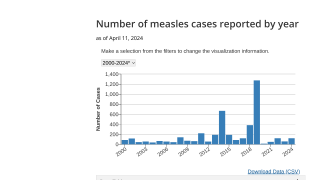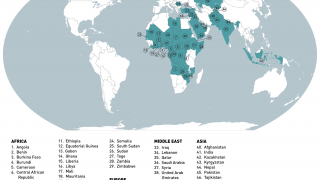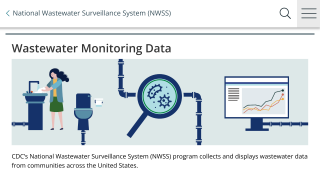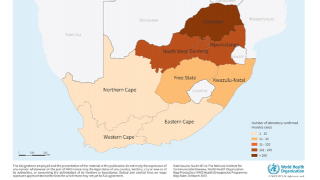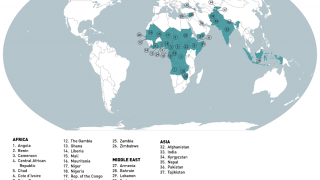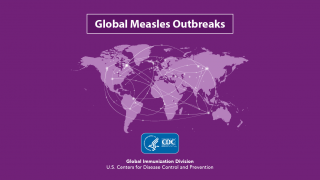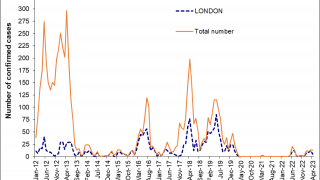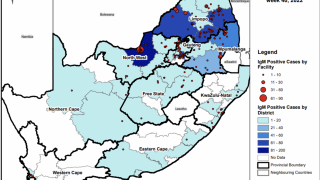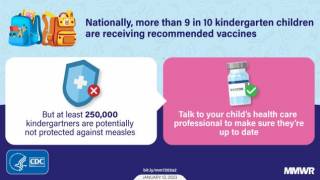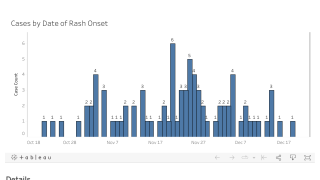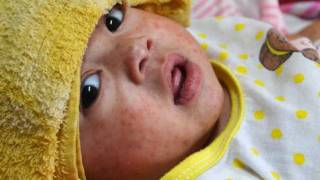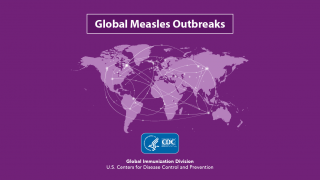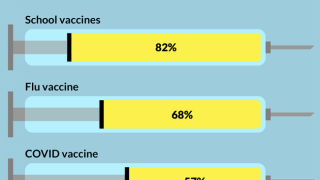Europe Confronts Measles Outbreak to Protect the “Herd”

One of the easiest infectious diseases to prevent, measles, made a stunning comeback throughout Europe during 2017.
The 2017 surge in measles cases included outbreaks of 100 or more cases in 15 of the 53 countries in the European Region, according to the World Health Organization (WHO).
This disease affected 21,315 people and caused 35 deaths in 2017.
Additionally, 87% of these measles cases were in unvaccinated individuals.
This abysmal achievement followed a record low number of 5,273 cases reported by the WHO in 2016.
The 400 percent increase has been linked to declining vaccination rates, prompting several European countries to pass a mixed-bag of legislation increasing the number of mandatory vaccinations and penalizing parents who refuse to vaccinate their children.
“Elimination of both measles and rubella is a priority goal that all European countries have firmly committed to, and a cornerstone for achieving the health-related Sustainable Development Goals,” said Dr. Jakab.
Italy was one of the 2017 leader of measles cases reporting 5,006, the most cases ever recorded in Italy.
In response, Italy’s Parliament passed a law making vaccinations mandatory for children being registered for school. Under the law, children up to the age of 16 are required to have vaccinations for chickenpox, diphtheria, Haemophilus B (Hib), hepatitis B, meningitis, measles, mumps, polio, rubella, tetanus, and whooping cough.
In addition, parents in Italy who don’t have their children vaccinated will face penalties, including being prohibited from enrolling their children in schools and fines up to $8,380.
A press release from Italy’s Ministry of Health said: “This practice of primary prevention of infectious diseases entails benefits not only for a direct effect on the vaccinated subjects but also indirectly, inducing protection for those not vaccinated, so-called herd immunity.”
'Herd Immunity' is generally achieved at 95 percent vaccination, says the US Centers for Disease Control and Prevention (CDC).
The highest numbers of measles cases were reported in Romania (5562), Italy (5006) and Ukraine (4767).
To a lesser extent, Greece (967), Germany (927), Serbia (702), Tajikistan (649), France (520), the Russian Federation (408), Belgium (369), the United Kingdom (282), Bulgaria (167), Spain (152), Czechia (146) and Switzerland (105) also experienced large measles outbreaks.
Measles affects all age groups across Europe according to the data for 2017 in the monthly measles and rubella monitoring report.
However, the highest incidence of cases was reported in infants below one year of age –those most at risk of severe complications and deaths – and too young to have received the first dose of the vaccine.
Vaccination with at least two doses of the Measles, Mumps, and Rubella (MMR) vaccine remains the most effective measure to prevent the further spread of measles, said the European Centre for Disease Prevention and Control (ECDC).
Since most measles cases in the USA are related to international travelers, the US CDC updated its Level 1 Travel Alert for measles for various countries.
The CDC recommends travelers are vaccinated against measles with the MMR vaccine. In the USA, two approved measles vaccines are available, MMR-II and ProQuad.
Additionally, the CDC suggests international travelers verify their last diphtheria-tetanus-pertussis, varicella (chickenpox), polio, and influenza vaccination.
The CDC Vaccine Price List provides the private sector vaccine prices for general information, and vaccine discounts can be found here.
Most pediatricians and pharmacies offer the MMR vaccine.
Vaccines, like any medicine, can have side effects, says the CDC. You are encouraged to report negative side effects of vaccines to the FDA or CDC.
Our Trust Standards: Medical Advisory Committee




